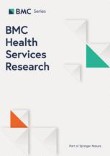Transnationalism and Care of Migrant Families During Pregnancy, Postpartum and Early-Childhood: An Integrative Review
Background
Migrant families’ transnational ties (i.e., connections to their countries of origin) may contribute to their hardships and/or may be a source of resiliency. A care approach that addresses these transnational ties may foster a positive identity and give coherence to experiences. We conducted an integrative review to determine what is known about transnational ties and the care of migrant families during pregnancy, postpartum and early childhood.
Methods
We searched 15 databases to identify literature reporting on a health or social program, service, or care experience of migrant families during pregnancy up to age five in a Western country (i.e., Canada, US, Australia, New Zealand or a European country). Information regarding if and how the service/program/care considered transnational ties, and care-providers’ perceptions of transnational ties, was extracted, analyzed and synthesized according to transnational ‘ways of belonging’ and ‘ways of being’.
Results
Over 34,000 records were screened; 69 articles were included. Care, programs and services examined included prenatal interventions (a mhealth app, courses, videos, and specialized antenatal care), doula support, maternity care, support groups, primary healthcare and psycho-social early intervention and early childhood programs. The results show that transnational ties in terms of ‘ways of belonging’ (cultural, religious and linguistic identity) are acknowledged and addressed in care, although important gaps remain. Regarding ‘ways of being’, including emotional, social, and economic ties with children and other family members, receipt of advice and support from family, and use of health services abroad, there is very little evidence that these are acknowledged and addressed by care-providers. Perceptions of ‘ways of belonging’ appear to be mixed, with some care-providers being open to and willing to adapt care to accommodate religious, cultural and linguistic differences, while others are not. How care-providers perceive the social, emotional and economic ties and/or the use of services back home, remains relatively unknown.
Conclusion
Significant knowledge gaps remain regarding care-providers’ perceptions of transnational ‘ways of being’ and whether and how they take them into account, which may affect their relationships with migrant families and/or the effectiveness of their interventions. Continued efforts are needed to ensure care is culturally safe for migrants.


